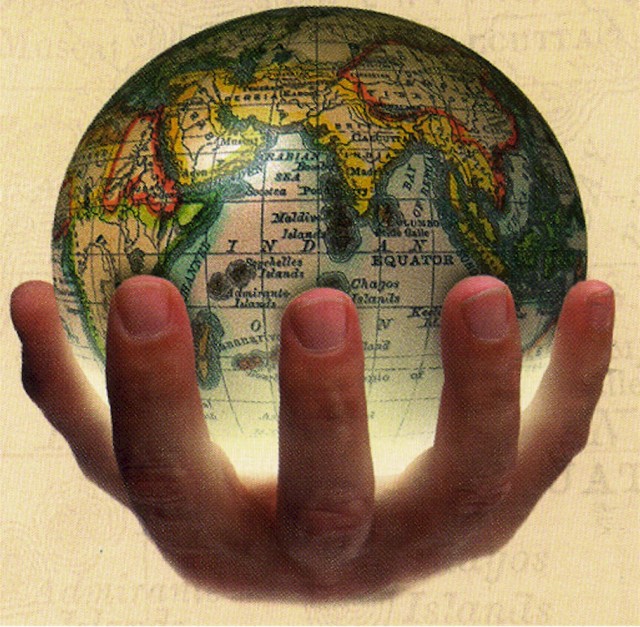imperialism
FEW TOPICS ARE MORE emotion-provoking than imperialism, which many consider to be a product of the 20th century and of Europeans. Nothing is further from the truth. By definition, imperialism is the act of imposing one's will (personal or national) on another culture or state to create an empire, or an empire is the consequence of the political act of imperialism. Imperare is Latin and means “to rule or to command.”
The geographic aspect of imperialism was for one country (sometimes even a mercantile city) to rule over widely spaced geographic areas. The person who ruled such areas was referred to as emperor or empress. Unfortunately, in recent times it has been common to use the term as a political epitaph, and generally incorrectly. However, any time one country seeks to impose its political authority on another, it is, by definition, an act of imperialism.

The most recent examples of imperialism include the U.S. application of massive military and technology to impose its values on countries around the world, most demonstrably in IRAQ and LIBYA. Others include al Qaeda and even the Wahabbis of Saudi Arabia, who seek to control the values and behavior of Muslims around the world.
History is filled with empires and imperialism. Those created by the Chinese, the Persians, the Romans, the British, the Russians, various Africans, and even the Incas are only a few of the better known examples. In virtually all cases, these “empires” and their “imperialism” affected areas and peoples contiguous to the borders of the ruling country or monarch. But of interesting contrast is that there was no Greek Empire. Greeks had empires created by city-states such as Athens or Corinth, but they were dispersed around the Mediterranean, similar to other commercial maritime empires such as those of the Dutch, Portuguese, Spanish, and British.
It is common to refer to the 15th century's Age of Discovery as the Age of Imperialism. The two processes did go together for Europeans. Certainly the major distinction between this age of imperialism and imperialism of earlier times was its geographic extent. At no other time in history did the process of imperialism reach around the globe and impose political authority on such disparate peoples and cultures, most wholly unrelated to the political center. Thus, we found the small country of Holland creating the Dutch Empire, reaching from the Caribbean to the islands of INDONESIA. It was truly said that the sun never set on the British Empire.
Imperialism is not a European invention or practice, but rather it is a political practice, normally generated by economics found at all time periods and in all geographic areas. From the Scythians to the Mongols to the Chinese, all had empires in their time.
IMPERIAL ECONOMICS
What generates imperialism? Many like to think solely in terms of political power, even conspiracy theories. In fact, history demonstrates that the primary motive has been and continues to be economics. In this context, one can use a modified version of the geographic model that explains trade to also explain empires. That is, there must be complementarity (something one area has that the other wants: raw materials, ports, etc.). This should be unique and not available elsewhere close (no intervening opportunity).
The modern version, with strong historic precedents, are multinational companies that seek dominance (control) of markets or raw material (oil is the most prominent today, but McDonald's, Coca-Cola, and Microsoft are relevant as well). Thus, political imperialism becomes cultural imperialism.
The primary factor in the demise of empires was their geographic extent and their demographic and cultural diversity. There never has been any administrative or social system that could hold the inherent diversity of an empire together. Only when the empire becomes a nation, such as CHINA or the UNITED STATES, and remains geographically contiguous does it seem to last.
The voluntary version of empire, a federal state, in which member parts voluntarily join together for mutual benefit, also reveals strains that so far have prevented its long-term survival. Current examples would include the EUROPEAN UNION, the Russian Federation, and the United States. All have central governments for purposes of national defense and economics, and all face strains of the parts chafing against lost local independence.
No empire can exist without a significant and efficient transportation and communication system. Every early empire had a system of “royal” roads: EGYPT, Mesopotamia, Persia, China, JAPAN, the Mongols, Rome, the Incas, the Ottomans, and Islam. Maritime empires from the Phoenicians and Greeks to the Venetians, Genoese, Spanish, Portuguese, Dutch, and British all fought for dominance and control of key shipping routes, CHOKE POINTs, and harbors. In many instances, use of these “highways” was limited to official couriers.
In addition, every empire required an involved system of administrative centers and officials. Most often, these were existing cities and often local officials were co-opted to serve the new rulers. In addition, empires required records and legal systems as well as warehouses and systems for collecting taxes and sending goods and money to the imperial capital. This in turn created bankers and merchants.